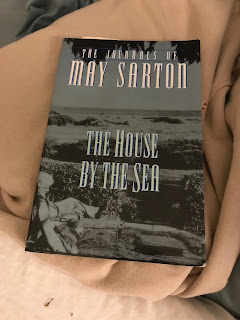Can a person be too broken by his life to be saved? In The Year of the Flood by Margaret Atwood,the convicts who come out of the novel’s version of prison, Painball, are no longer human. They have moved into the realm of cunning, intelligent animal predators and must be treated as such. But there are other ways this concept applies too. It is possible to be so emotionally broken that you can’t be fixed. At worst, people retreat into insanity; at best, into a hermit-like existence devoid of the society of others. They become as emotionally afraid of others as the novel’s characters are physically afraid of the Painballers. They retreat from a reality they see as uninhabitable. But what if reality really did become uninhabitable?
The last two novels I’ve read have had plots and themes about the dissolution of our society. In The Hunger Games, the country has become a totalitarian state with no protections for the individual in a society governed by group think and propaganda. In The Year of the Flood, the “waterless flood” has washed away any semblance of society. When society breaks down, and there is not only no safety net but no safety at all, emotional and physical pain become the most prevalent experience for humanity. One of the main characters in The Year of the Flood observes that sadness may be a kind of hunger. It makes sense to think that when you are sad, it is because you hunger for something you don't have. Sadness and hunger become the rule rather than the exception in a dystopic society. I suppose when you get to the point of living all the time in survival mode, you don’t have time to ask yourself questions about the purpose of your life or about the direction of your species. You learn to live in the moment and to continue to live only so others later may be able to live more easily than you. But I can’t imagine wanting to stay alive in a world like that. Good thing the propagation of the species doesn’t depend on me. If society collapsed, I’d be one of the first ones tagging out, I’m afraid.



3 comments:
Interesting perspective.
This makes me think of Maslow's hierarchy of needs, but an interesting twist. He says that we can only move on to "higher" needs like beauty and meaning when we've satisfied our "lower" needs...to eat and be warm. There are a lot of critiques of this model...I think maybe being hungry or in pain or cold could, in fact, lead to some pretty serious soul searching. What's the nature of a world that causes such pain and suffering?
We are kindred spirits! I like that you use what you read as a starting point for a bigger discussion that moves beyond just the details of the book.
Thanks, Robyn, and thanks for visiting, Melissa. I've spent some time in a small, very poor village in Mexico, and one of the things I noticed most about the lives of the people there was the lack of comfort and the lack of any kind of "abstract living experiences." No art, no music, no reading, etc. I guess I'm spoiled in thinking I couldn't live like that for long. Maybe we never know what we can and can't handle until we're confronted with it.
And thanks for commenting about the way I organize my posts. I don't like to just summarize plots, and I need to feel like I'm saying something original. Otherwise, I'm just not going to say anything at all :)
Post a Comment